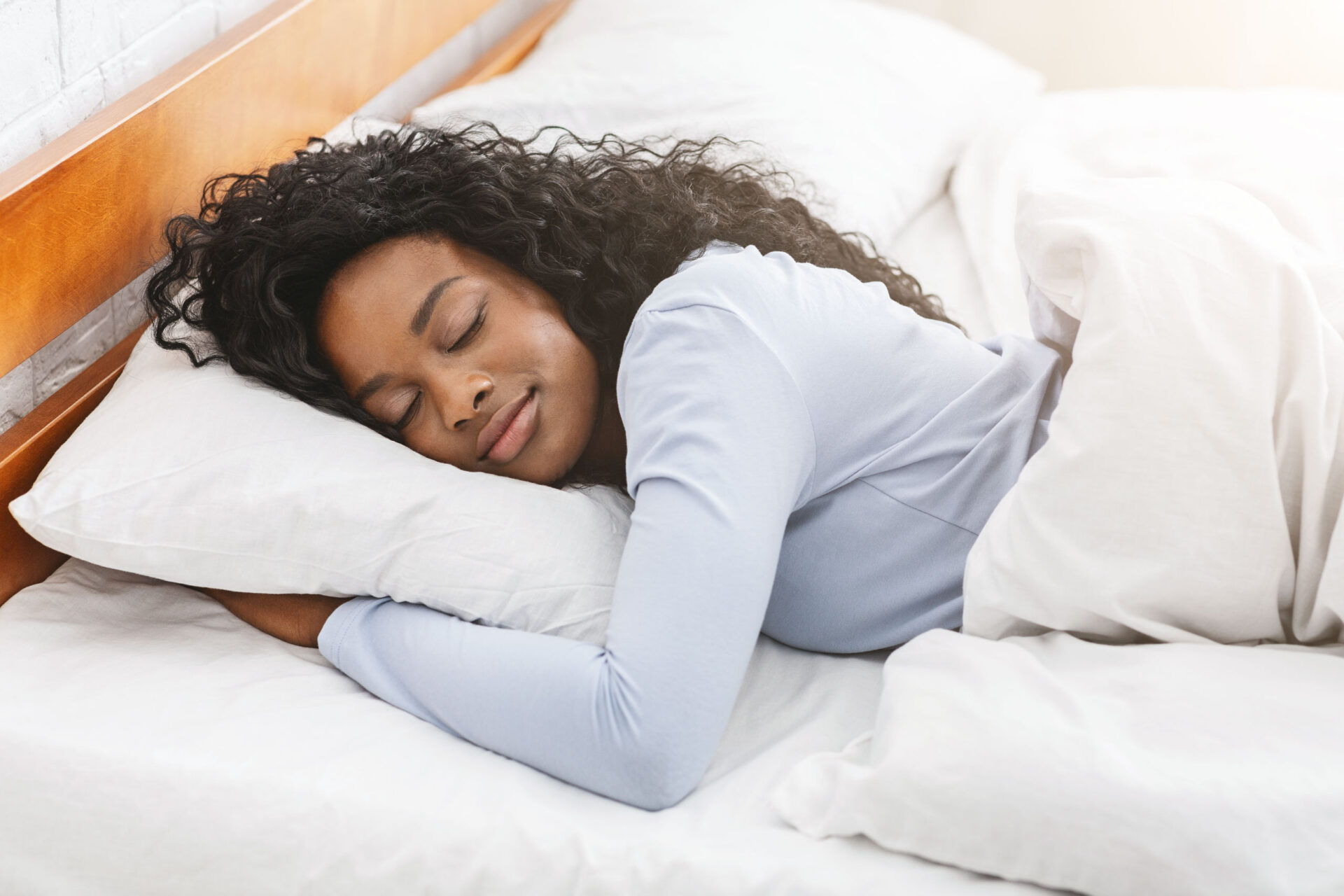
The COVID-19 pandemic has affected us all in many ways. At its peak, worries about COVID-19 kept many from getting enough sleep and having a set sleep schedule. Plus, being stuck at home, social distancing and losing track of time may have also made it challenging to get enough rest. If you found yourself with “coronasomnia” or other disturbances to your sleep pattern, you may still be feeling negative effects to your lifestyle and daily routines.
The good news is, there’s plenty of room to practice new habits for a healthy, happy lifestyle. Now more than ever before, it’s important to take care of yourself and this includes getting a good night’s rest.
Why is sleep so important?
Sleep care is the new self-care. So, why is sleep so important? It’s a vital part of your health and wellness. You may not realize it, but the amount and quality of sleep you get each night can impact the way your immune system functions, your mood and much more!
Getting consistent and high-quality sleep can improve all aspects of your health. If you are having persistent trouble sleeping, it’s important to contact your doctor.
How to get better sleep—and why it’s important
If you are struggling to get a good night’s rest, don’t worry! There’re some steps you can take to get back on track:
-
- Create a sleep routine. Have a wake-up time, a wind-down time and a set bedtime. This means waking up at a fixed time every day, winding down or getting ready for bed, and having a set time you want to fall asleep. It is important for your circadian rhythm, the natural process your body goes through to regulate your sleep and wake cycle. Try having your alarm clock, phone, tablet or other electronic device on the other side of the room. This will help ensure you don’t have any distractions.
- Practice good sleep hygiene. This means using your bed for sleep and sleep only. Try to avoid sitting or lounging in your bed when it’s not bedtime. If you have a TV in your bedroom, move it to another room in your house. It can also be a hard habit to break if you’ve become accustomed to working from home in your bed. If you’re tempted to look at your phone or devices before bed, simply leave them on the other side of the room when it’s time to turn in.
- Exercise. Physical activity can make you tired and help you sleep well. Walking, stretching and relaxing before bed can help ensure you get a good night’s sleep. That’s because it helps regulate your circadian rhythm so your body stays on a regulated schedule. It’s important to make sure you do any exercise one to two hours before bedtime, to give your mind and body time to wind down after your workout is complete. Exercise creates endorphins, which can keep you awake and make it difficult to fall asleep.
- Eat a balanced diet. You are what you eat! You’ve probably heard this saying before, but when it comes to your diet and sleep, studies have shown it really does matter what you eat throughout the day. Try to avoid sugary snacks or drinks before bed, including alcohol or anything with caffeine. You should also avoid a high carb intake before bed, as carbs can reduce the amount of time your body spends in the deep sleep cycle. Instead, try sticking to a diet loaded with fresh fruits and vegetables, vitamins, minerals, lean meats and fish. If you need a snack before bed, choose something small and packed with protein, such as nuts, cheese or hummus.
Health benefits of getting a good night’s rest
Sleep is important. But did you know there’s several health benefits from getting a good night’s rest? Getting enough sleep can:
-
- Boost your immune system. When you get enough sleep, your body can better fight off infections like the cold or flu. According to sleep specialists, a good night’s rest can also help make vaccines more effective. This is especially helpful if you have yet to receive the COVID-19 vaccination.
- Help prevent weight gain. If you don’t get enough sleep, your body produces a hormone called ghrelin, which boosts your appetite. This can lead to extra snacking and junk food cravings, adding to weight gain.
- Increase heart function. Not getting enough sleep can lead to the production of cortisol, which can contribute to high blood pressure. And when left untreated, high blood pressure can place you at risk for heart disease.
- Improve your mood. When you get a good night’s rest, you may find yourself energized and excited to take on the day. You will feel more productive, as sleep increases focus, energy and concentration. Studies have also shown lack of sleep can lead to mood disorders and may cause depression, anxiety and panic attacks.
- Improve memory. While you sleep, your mind is still at work. And if you don’t get enough of those Zzs, your mind can’t properly function. Sleeping improves your ability to remember things, concentrate, process thoughts and stay alert.
Sleep technology
If you’re into the latest tech, you might be interested to learn about sleep trackers. These measure biometrics like heart rate and body temperature. There’s also some apps for your smart phone available to download, such as Ognomy, NapBot, Sleep Cycle and Sleepio™. Sleep Cycle is a free app that monitors your sleep patterns based on movement and gently wakes you at the ideal time during your sleep cycle, so you wake up feeling refreshed. Quality sleep trackers offer important data to help improve your sleep hygiene, so you can avoid restless nights.
Catch some Zzs and count some sheep
Sleep is important, so take the proper steps to help improve yours if you’re having trouble. Whether it’s taking a nap or a getting a full night’s rest, reap the benefits sleep can offer! A consistent sleep schedule can work wonders for you and your health.
This article is for informational purposes only, and is not meant as medical advice.
Sources:
https://www.byrdie.com/wellness-predictions-2021-5092215
https://www.techradar.com/best/sleep-tracker
https://www.byrdie.com/how-to-wake-up-without-an-alarm
https://www.sclhealth.org/blog/2018/09/the-benefits-of-getting-a-full-night-sleep/
https://onboarding.sleepio.com/sleepio/cvs/78#1/1



